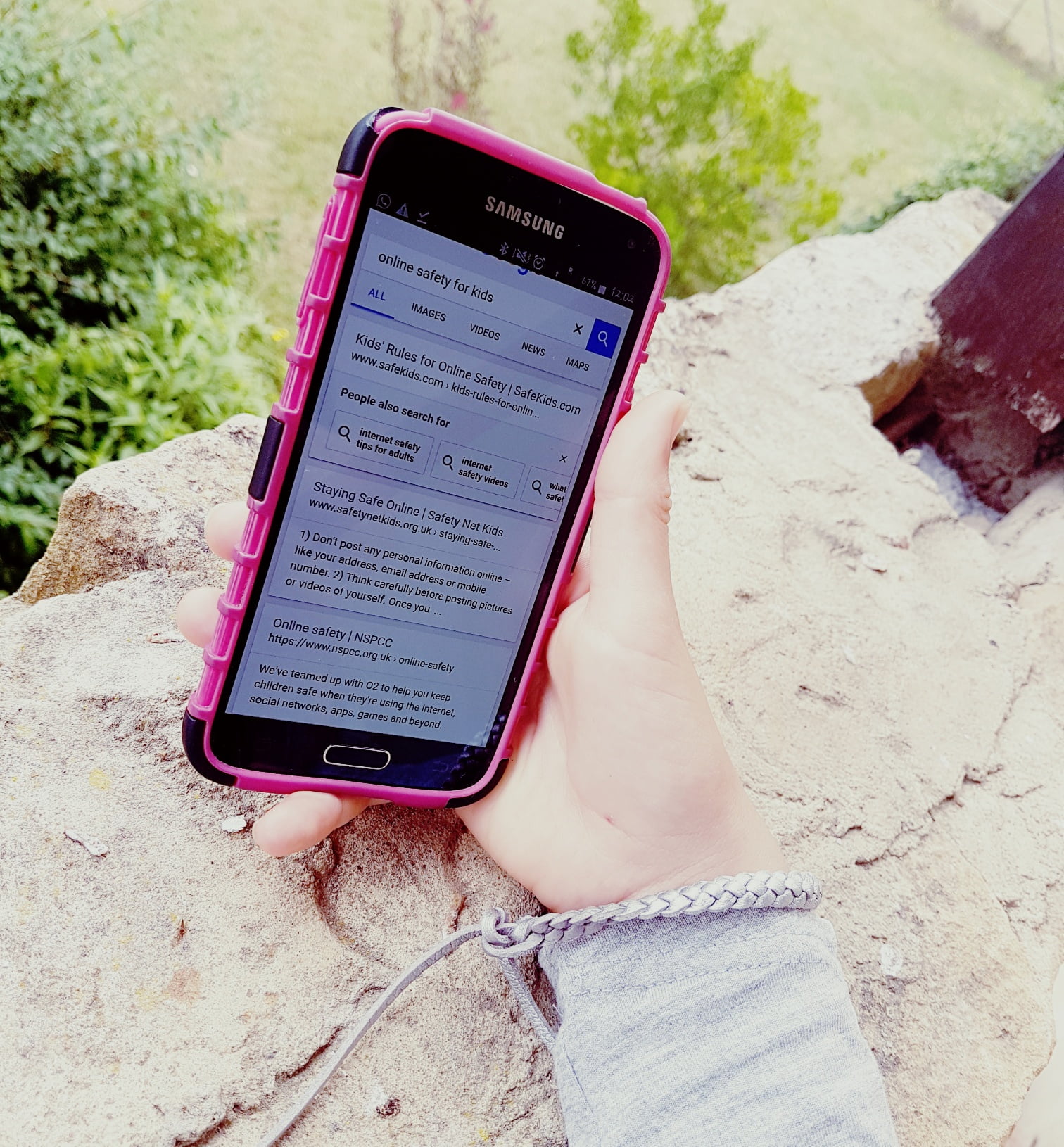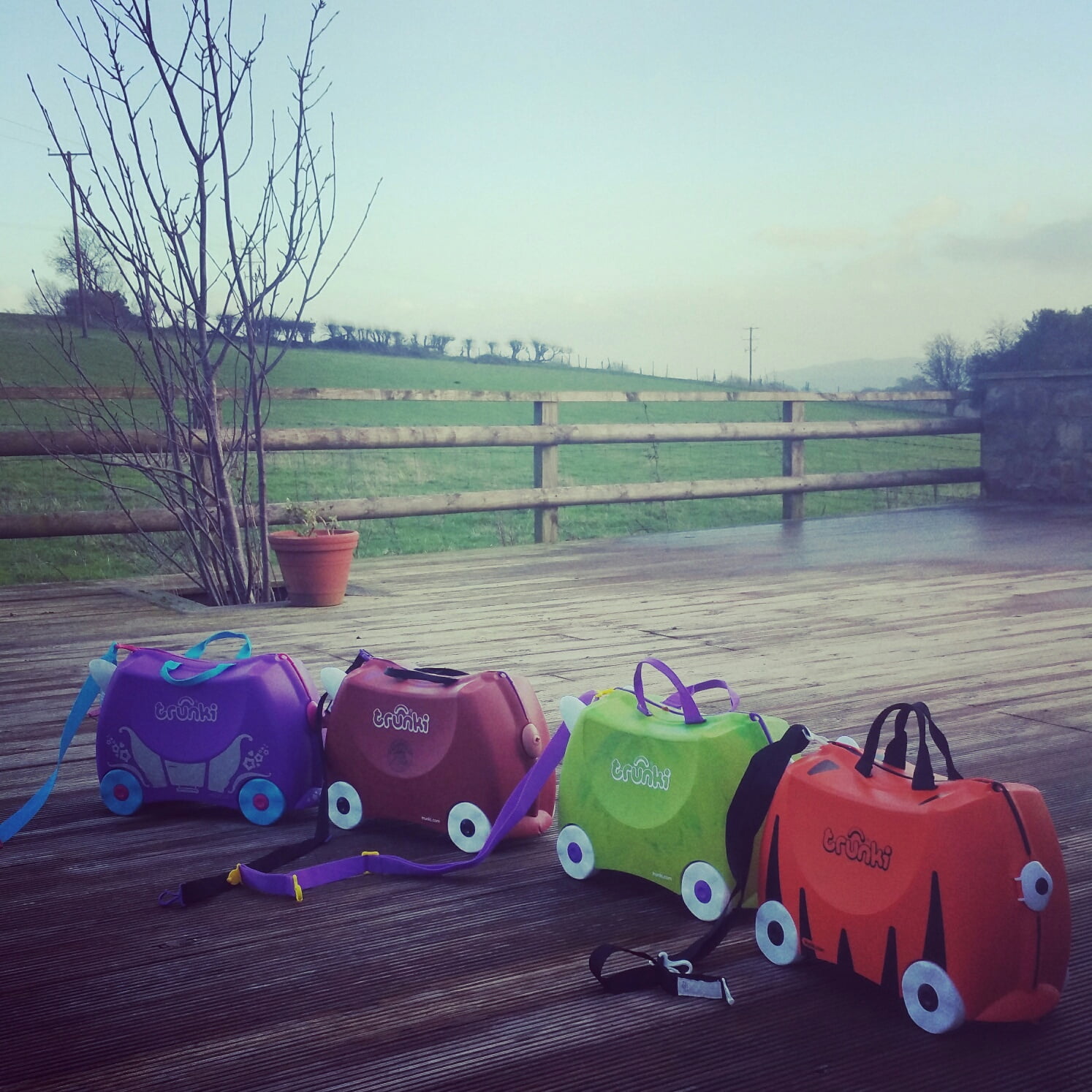Worried about device security whilst on holiday?
Holidays, we live for them, don’t we? That special time once, maybe twice or more a year if you are really lucky, when your whole family can get away and be together. Holiday time might also mean that you relax some of the rules or systems you have normally at home. Whilst flexing on bedtimes, or the amount of screen time during the holidays might be reasonable, relaxing your approach to the families’ digital security shouldn’t be something you relax on. Have you considered device security whilst on holiday?
There are many issues that parents need to consider when it comes to managing the families’ online activity on holiday. Obviously, you might want to limit the amount of online time your children have whilst away from home.
The types of content they can access might be something else you want to consider, along with other digital security issues that might occur whilst abroad, such as ensuring passwords are protected and being aware of the dangers of connecting to public networks. You can visit sapphire.net and secure your data.
Of course, many of these issues apply equally day-to-day, but it’s something that you can’t relax about during the holidays. After all, as parents all we really want is to ensure our children are safe from harm. These days, sadly that includes cyber bulling and being the target of other forms of online abuse. Have you considered device security whilst on holiday?
What’s changed?
When I was a child we just had one computer for the whole household. No one had a laptop, they didn’t exist. No one had a mobile phone, they didn’t exist. There weren’t the devices we have today, no one went “online” and therefore the risks didn’t exist.
Even by the time the internet was a feature in most homes, parents could safely introduce children to the online world via a home desktop or ‘family’ laptop. We could keep an eye on our children with ease and monitor using some sort of parental control software.
Today we find ourselves in a very different age, the age of smartphones and tablets – effectively mini-computers that can be used anywhere! This means that as parents we are dealing with a very different beast, and something that perhaps some of us don’t even understand that well ourselves. Many parents find it a real challenge to not only educate their children in doing the right thing online, but monitor and control their online behaviour.
Keeping children safe online is something that many parents worry about and something that the parents I talk to consider one of their biggest concerns about modern parenting.
When we travel these days, our devices travel with us, meaning these risks are always present.
What are the risks?
There are a number of risks when it comes to online activity at home and abroad, including:
- Spending money without realising – very easy with online games when children are being asked to buy new levels, power ups and so on.
- Cyber bullying – via abusive online messages.
- Access to inappropriate content – without the proper controls it could be easy for children to accidentally come across adult or abusive content.
- Reputation – when children start using social media their reputation is at stake, it wouldn’t take must to damage this and once it’s ‘out there’ there is no going back, think twice before you allow children to register with multiple social networking sites.
- Privacy is a big issue – children may unknowingly reveal information such as their location or personal details without understanding the implications.
- Grooming – always a terrifying concept I think, basically when someone builds an emotional connection with a child online, gaining their trust, for the purposes of sexual exploitation and abuse.
Minimise the risks

Spend less time on your devices
It might seem obvious, but less time spent on devices that have internet access, means less opportunity for risk.
Enjoy each other’s company, get outside, walk, talk and laugh – and don’t forget to snap some pics along the way, you can upload them to social media later!
How many times have you seen people out together and instead of talking and enjoying the moment, they are communicating via social media? It’s bizarre.
Have an open discussion with your children
Having an open dialogue with your children is one of the most important things. Difficulties can begin when children feel they need to keep secrets from their parents, so being able to communicate openly about the risks of digital life is really valuable.
Have the discussion, set reasonable boundaries, explore sites and apps together, get involved and stay involved – make sure privacy settings are enabled and any blocks in place. Most importantly, make sure they know they can talk to you about anything that concerns them.
Make the most of your passwords
It is so important to ensure all your family members are using devices that are password protected. To remain as safe as possible, don’t use the same password for everything. Ideally, passwords should be over eight characters and the more nonsensical they are, the safer you will be online. If your device is stolen, there is a much slimmer chance of the thief being able to access the device at all, rendering it useless.
If you are using a hotel safe make sure you use a different password again, don’t write your passwords down or keep them with your documents – whilst you might think that this is stating the obvious, I know lots of people who do this.
Use an adaptive security cloud
When it comes to protecting the whole family online both at home and abroad, the Kaspersky Security Cloud is a feature-filled package ideally placed to protect your family’s devices and give you that piece of mind we all crave.
This type of cloud security offers protection on multiple levels. It offers protection against malware, viruses and other security issues. It also offers the facility to create and store strong passwords, alongside a suite of features aimed at protecting children online, and privacy protection.
The service includes the ability to set up a temporary virtual private network (VPN) to encrypt all internet data sent and received on the device when it is switched on. The central idea behind this is to protect your family wherever they are, on whatever device they are using to access the internet, meaning it’s ideal protection both at home or abroad. There are VPNs which are the best deals for families as they allow a lot of simultaneous connections. See this for more details: https://www.vpnthrive.com/best-vpn-for-multiple-devices/
Have any of you ever used any system like this? How do you find it? I’d certainly say it reduces the anxiety related to online activity.
The family package allows you to create up to 20 individual accounts very easily, tailored to the age and maturity of each user. If you’re familiar with Netflix you won’t have any issues doing this as it’s very similar. It’s one of the most comprehensive solutions I’ve seen to device security for families. Obviously risks change and so do products, but with regular updates a product like this can really help keep everyone safe.
Use public WiFi with caution
Everyone gets excited about public WiFi, especially if it’s free, but you need to stay vigilant. If you don’t want information to be viewed by others, don’t input it, simple! Of course, you should NEVER share personal information or passwords whilst using public Wi-Fi.
Basically, just think before you use it. Public Wi-Fi is everywhere these days, and whilst that is amazing for lots of reasons, it also makes it easy to become distracted and complacent. Don’t get complacent about your online safety, and especially that of your children.
Refrain from using public phone charging stations
Running out of mobile phone battery is a modern-day catastrophe. However, don’t be tempted to use public charging stations. These are available all over the world these days. We’ve seen them at festivals in the UK numerous times but you are much better off using your own portable charging unit in that situation, or if you have access to mains, your own charger.
Just remember to charge your portable device in advance! If it’s something you don’t use often, it’s easy to forget.
The riskiest travel destinations?

When it comes to device and online security we need to be vigilant everywhere but there are some places in the world where you need to be especially on top of your game. Are you surprised by any of these?
1. The US – 5 million mobile threats
2. The UK – 2 million mobile threats
3. Spain – 1.7 million mobile threats
4. France – 700,000 mobile threats
5. Poland – 475,000 mobile threats
6. Canada – 400,000 mobile threats
7. Italy – 400,000 mobile threats
8. Portugal – 375,000 mobile threats
9. The Netherlands – 320,000 mobile threats
10. Greece – 75,000 mobile threats
This just shows that we don’t even need to travel abroad to be at risk!
Final thoughts
The internet is a wonderful thing. We can stay connected, communicate, learn and be entertained in multiple ways and via a range of devices. We can do this both at home and whilst on holiday.

This online world isn’t without some very real and severe risks though and we do need to consider as parents how we can best protect our families – please do think about device security whilst on holiday. So: keep an open dialogue; consider using a security cloud; use public networks with caution: but above all encourage everyone to put their devices down, especially on holiday; because really, there’s no substitution for quality family time on holiday!



1 comment
some good things to consider here ! a great read thanks x